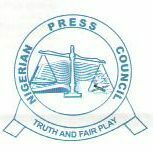The two-day workshop on 2011 General Elections: Expectations from the Media organized by the Nigerian Press Council (NPC) in collaboration with the International Republican Institute (IRI) was held at Hamdala Hotel, Kaduna on March 22-23, 2011. One hundred and eighteen participants drawn mostly from the print and some electronic media in the northern states appraised the role of the media in the electioneering process and their operating environment and made the following observations:
- That the role of the media in the successful conduct of the 2011 general elections is both critical and irreducible, as it is ethically and constitutionally imperative on the media to insist on reporting the truth, in strict compliance with the time-honoured principles of objectivity, balance and fairness.
- That democracy cannot thrive without free flow of information, and the mass media remains the most potent vehicle for dissemination of information. There is need, therefore, for the citizenry to be adequately informed to make sound electoral choices, and this can only be possible when the media discharges its role effectively.
- That election is a process; therefore, effective coverage of the cycle entails the countinuous provision of timely, accurate information before, during and after the polls, until all post-election disputes are resolved and winners inaugurated.
- That the availability of different versions of the amended Electoral Act 2010 and the 1999 Constitution of the Federal Republic of Nigeria in circulation is confusing , and does not providethe accurate legal framework to guide elections.
- That the movement of Electoral Officers close to the eve of elections does not give the affected officers adequate time to familiarize themselves with their operating environment before the election, and might hamper the smooth conduct of the election.
- That journalists should avoid unauthorised announcement of results of elections or false extrapolation of results to avoid confusion or violence.
vii. That journalists have a responsibility to highlight the laws as well as focus on the challenges of free and fair election so that INEC and relevant institutions would remedy the identified challenges.
- That the Nigerian media is elitist and urban biased, with the corresponding disconnect between the media and the rural people.
- That the intolerance of opponents by the political class, especially those in power, tend to slant and erode the dynamism of the media in the democratic order.
Consequently, participants resolved as follows:
- That the media should be conscious of the responsibility vested on it by the constitution and do everything within its power to ensure it discharges this role effectively.
- That journalists should familiarize themselves with the various laws which guide the electoral process, as well as the statutory functions of each of the various managers of elections, so as to know who has the responsibility to announce the result, and who has the responsibility to declare the winner.
- That journalists should be conscious of existing laws on elections and arm themselves with the authentic version of the Electoral Act 2010, as well as other relevant legislations. The Federal Ministry of Information and Communcation should ensure the availability of the gazetted copy.
- That political parties and INEC should intensify the sensitization of voters as majority of the people are yet to fully understand the voting procedure.
- That the media needs to take the issue of fairness to all political parties/actors as a fundamental principle. They should scrutinize their manifestos and the validity of the promises they make in the course of campaigns.
- That media professionals should give regard to ethics and professionalism in the coverage of political activities while the various regulatory agencies like NPC and NBC charged with enforcing the codes should gear up on enforcement.
- That journalists should avoid situations that would bring about conflict of interests in working for politicians so as not to compromise the truth, integrity, and their safety.
- That there is need to protect women who are on electoral duties, especially in cultures where there is still strong prejudice against women.
- That there is need for the media to engage in massive sensitization of the people on the modified Open-Secret ballot system, especially as it affects accreditation before voting.
- That training and retraining of journalists should be continuous to build their capacity to educate voters and guide them to make informed electoral choices.
- That only reporters that have been properly trained should be saddled with the responsibility of covering elections, because election reporting is a specialized field.
- That each media house should set up a properly funded election desk , with specified pages/airtime devoted to issues surrounding the elections on regular basis.
- That the FOI Bill should be seen as a right of information for every citizen.
- That INEC should devise improved strategies for dealing with the challenges from the delays in the movement of electoral materials and personnel to less-accessible voting centres so as not to disenfranchise some voters.
- That there is need for increased enlightenment of the populace on the various electoral processes by public enligntenment agencies such as the National Orientation Agency (NOA), federal and state ministries of information, etc.
Finally, participants commended the NPC and the IRI for the timely organization of the workshop, and urged them to sustain the initiative in order to enhance the capacity of journalists to respond appropriately to the onerous challenge of election reporting, in the interest of enduring democracy and a better society.
Dr. Emma Shehu M. ‘Bayo Atoyebi Ilya Garba
(for Resource Persons) (for NPC) (For particiants)
